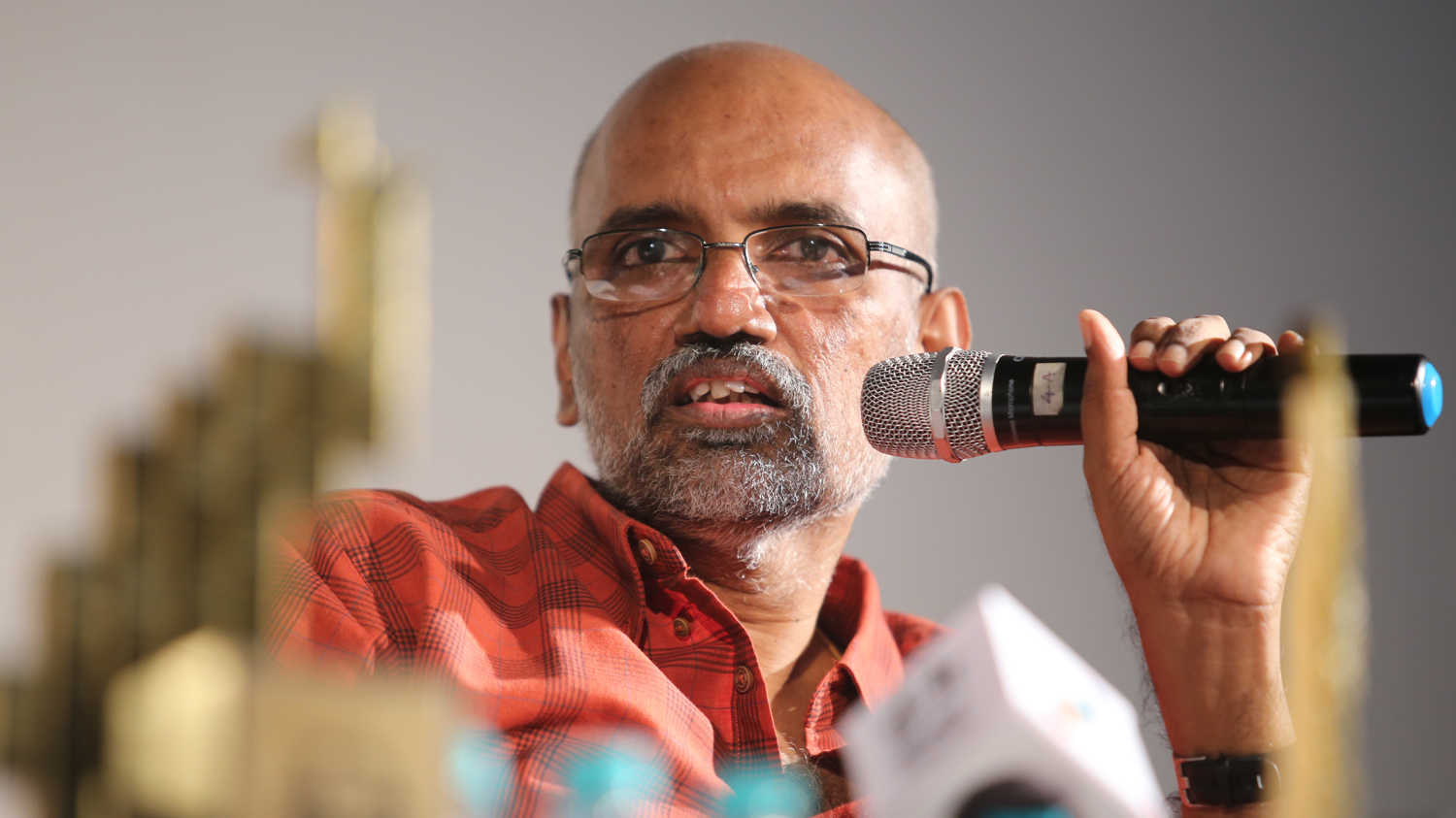In a masterclass at the 49th International Film Festival of India, he enlightened the audience about the time when editing involved actual handling of film, which made it a physical labour.
Article Assam Bengali Hindi Malayalam
Every story has its own pace and an editor must adapt: A Sreekar Prasad at IFFI 2018
Goa - 23 Nov 2018 18:00 IST


Blessy Chettiar
Eight-time National Award-winning film editor A Sreekar Prasad conducted a masterclass titled, 'A ‘Cut’ Above the Rest' at the ongoing 49th International Film Festival of India (IFFI) in Goa. In the masterclass, led by National Award-winning film director Utpal Borpujari, Sreekar Prasad spoke on a variety of topics including his editing process, influences the films he has worked on, his rapport with directors, need for coordination with technical staff and experimentation.
Sreekar has edited films in 17 Indian languages, including Hindi, Tamil, Telugu, Malayalam and Assamese among others, and has worked with several renowned directors like Mani Ratnam, Shaji N Karun, Vishal Bhardwaj, and Sri Lankan director Prasanna Vithalage.
I think I am a gangster at heart: Vishal Bhardwaj at Film Bazaar 2018
"I have been very lucky to work with a lot of interesting filmmakers over the years who have inspired me to do good work. It is a process of learning while you work, and that makes it more interesting. Over the years it has also been about unlearning. Many a times you’re stuck to some concepts, then you unlearn it with other filmmakers to think out of the box. There are a lot of exciting possibilities which you have to understand, appreciate to go this kind of journey," said the master editor.
Sreekar Prasad has edited an array of different films like Raakh (Hindi, 1989), Vanaprastham (Malayalam, 1999), Dil Chahta Hai (Hindi, 2001), Meenaxi: Tale Of 3 Cities (Hindi, 2004), Ira Madiyama (Sinhalese, 2003), Kaminey (Hindi, 2009), Thupakki (Tamil, 2012), Finding Fanny (Hindi, 2014), and Talvar (Hindi, 2015), to name a few.
Sreekar Prasad came prepared well for the masterclass with clips of the above mentioned films to give film enthusiasts a peek into his work and understand his process better.
Indian classical music can never be mainstream, says Arijit Singh at IFFI 2018
He explained how the editing process was created to help filmmakers make films longer. "When films were started 100 odd years ago, they used to be in single takes. So, the purpose of the editor was limited for a long time. Once the process of editing started, people realised that there is a huge experimentation that you can do that can change the whole course of a story and can heighten tension. The whole juxtaposition of shots started and it suddenly became an art, where it determined the course of how films were made as time passed. This growth in editing has been fantastic," he said.
When asked what editing meant to him, he said, "When I started in the 1980s, when limited footage was hot, it was more of a cut-and-paste job. It was only with certain films that you were allowed to experiment in terms of narratives. Now as time goes on, editing has got a much more definite role, because the amount of footage, options, experimentation with digital machines, have increased. All these things add up to make an editor’s life much more exciting. The most important thing for me is to tell the story in a manner which is clean, and does not disturb you."
If you don’t have a recognizable face in your film, go home: Rahul Bose at IFFI 2018
He enlightened the eagerly listening audience about the time when editing involved actual handling of film, which made it a physical labour. He added that editing is about blending with the particular story, theme and creating a form in which the pace and rhythm slowly develop into a story to be told to an audience.
Sreekar Prasad insisted that every story has its own pace and an editor must adapt. "Every story is different, every director is going to visualise a similar scene very differently. An editor has to adapt. For me, it has been to tell a story in a manner which is clean, which doesn’t disturb you. And editor has to be someone very invisible. I would expect the audience to enjoy the film and probably later think about the way it was edited."
Related topics
IFFI


